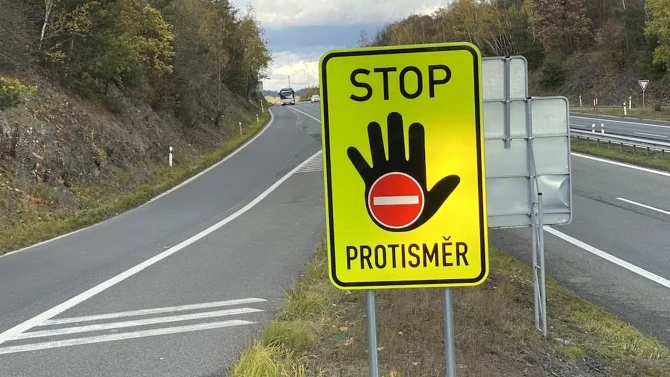...tumble
* Japan stocks down 9 percent, Europe 5.75 percent
* Britain in 50 bln pound bank bailout
* Demand for bonds, gold, low-yield FX jumps
By Jeremy Gaunt, European Investment Correspondent
Stock markets across the world plunged on Wednesday as concerns about the worst financial crisis in nearly 80 years and fears of a global recession gripped investors despite government efforts to intervene.
MSCI's main benchmark index of world stocks <.MIWD00000PUS> was at 4-year lows, down 3.5 percent, and its emerging market stock counterpart <.MSCIEF> fell 7.3 percent.
The pan-European FTSEurofirst 300 index <.FTEU3> tumbled 5.75 percent and Tokyo's Nikkei share average <.N225> plummeted 9.4 percent, the largest single-day percentage decline since October 1987.
Government debt prices jumped as the equity selloff reached fever pitch and investors snatched anything resembling stability, such as gold which rose <XAU=> more than 2 percent and the Japanese yen.
"The deteriorating outlook for the economy and the deepening financial crisis are pushing fears to their limit," said Mitsushige Akino, chief fund manager at Ichiyoshi Investment Management in Japan.
The sharp market moves came despite efforts by various authorities to inject calm and money into the battered financial system.
Britain unveiled a multibillion pound rescue package for British banks that included plans to inject up to 50 billion pounds ($87.84 billion) of government money into the country's biggest operators.
It was designed to offer banks short-term liquidity, make new capital available and give the banking system enough funds to maintain lending in the medium-term.
"This means they are sorting out all the refinancing problems for 2009," said Emanuele Ravano, managing director of fixed income firm Pimco Europe.
U.S. Federal Reserve Chairman Ben Bernanke, meanwhile, warned on Tuesday that turmoil in markets could cause U.S. economic activity to be subdued into 2009 and signalled a readiness to cut interest rates.
Bernanke's sobering and candid tone about the likelihood of rate cuts came days after European Central Bank President Jean-Claude Trichet suggested last week the euro zone too could cut rates.
The Bank of England delivers its latest rate decision on Thursday and is expected to ease.
However, with the upcoming Group of Seven rich nations meeting on Friday, investors have begun to look for coordinated action to snuff out what has become a severe global threat.
HISTORIC LOSSES
The losses on stock markets this week have been huge.
MSCI's world index, a gauge which many investors use to judge their performance has already lost 12 percent since Friday's close and is on track for its worse week in the 20 years it has been in its current form.
The emerging market benchmark is in the same boat, losing 18 percent for the week to date.
The FTSEurofirst, meanwhile, was touching 5 year lows on Wednesday.
"Obviously equities are not the flavour of the month to put it mildly," said Peter Dixon, UK economist at Commerzbank.
In credit markets -- at the heart of the crisis because of a freezing up of lending -- UK banks were standing out, with the cost of insuring their debt against default falling sharply after the government bail out.
But the Markit iTraxx Crossover index <ITEXO5Y=GF>, made up of 50 mostly "junk"-rated European credits, was at 636 basis points, according to data from Markit, 20 basis points wider than late on Tuesday.
Money markets also showed no sign of thawing with the cost of interbank borrowing staying way above official interest rates.
Three-month dollar interbank rates were quoted as high as 6.00 percent on Reuters system <USD3MD=>. This compares with market expectations that the Federal Reserve would cut interest rates to at least 1.25 percent by January.
Euro rates for the same period stood at 5.35 percent on Reuters system <EUR3MD=>, compared with the benchmark ECB rate of 4.25 percent.
YEN JUMPS, YIELDS FALL
The low-yielding yen held onto gains after surging broadly overnight as investors fled stocks and unwound carry trades favouring higher-yielding currencies.
Sterling, however, got a boost after Britain's bank plan.
The yen was up more than 1 percent on the day against both the dollar and euro. The euro was at 136.16 yen <EURJPY=> after hitting a 3-year low of 135.02 yen. The dollar was at 99.9 yen <JPY=>.
Sterling was up 0.3 percent at $1.7523 <GBP=>, and also firmed against the euro at 77.86 pence <EURGBP=>.
"Investor risk aversion and selling of high-yielding currencies are prominent," said Masafumi Yamanoto, head of foreign exchange strategy for Japan at Royal Bank of Scotland.
Interest rate-sensitive two-year Schatz yield <EU2YT=RR> was down 14 basis points at 3.035 percent. (Editing by Victoria Main)
[LONDON/Reuters/Finance.cz]
GLOBAL MARKETS-Stocks tumble despite government crisis moves
08.10.2008 | , Reuters
Zpravodajství ČTK
 Zdroj: Finance.cz
Zdroj: Finance.cz
* World stock markets...
Články ze sekce: Zpravodajství ČTK
AUTA



 Povinnosti účastníků provozu účastníky provozu mnohdy zaskočí. Dnešní kvíz prověří, jestli své povinnosti znáte
Povinnosti účastníků provozu účastníky provozu mnohdy zaskočí. Dnešní kvíz prověří, jestli své povinnosti znáte
 „Přišel pěšky, odjel vlastním vozem“: slogan autobazarů měl charakterizovat prodeje ojetin v Československu
„Přišel pěšky, odjel vlastním vozem“: slogan autobazarů měl charakterizovat prodeje ojetin v Československu
 Je Kodiaq favorit? V ČR se hledá nejlepší auto pro rok 2025. Ve hře je i brutální elektromobil nebo klasické SUV
Je Kodiaq favorit? V ČR se hledá nejlepší auto pro rok 2025. Ve hře je i brutální elektromobil nebo klasické SUV
 Rok po faceliftu dostal elektrický bestseller z Mladé Boleslavi další facelift. Enyaq vypadá jak Elroq
Rok po faceliftu dostal elektrický bestseller z Mladé Boleslavi další facelift. Enyaq vypadá jak Elroq
 Kdo nezvládne kvíz základních dopravních značek za plný počet, ten by raději neměl řídit. Tak se ukažte
Kdo nezvládne kvíz základních dopravních značek za plný počet, ten by raději neměl řídit. Tak se ukažte
